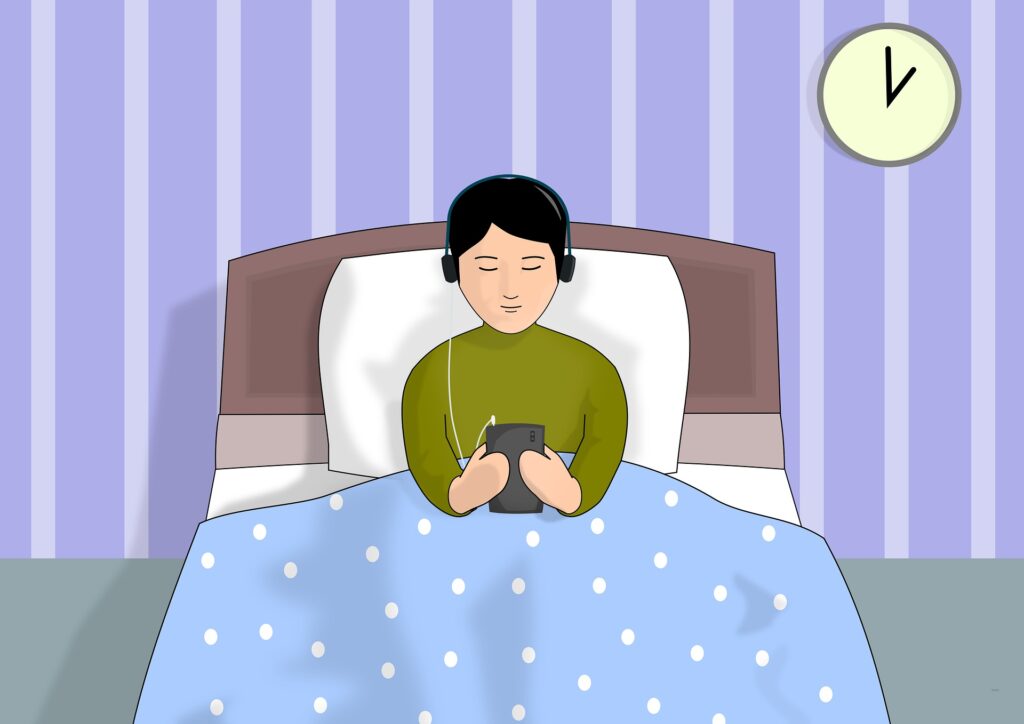If you stand in the hallway of a high school, greeting students and asking, “How are you today?”, do you know what most of them will say? They’ll have a one-word answer: “Tired.”
And their appearance will match the word. Many look utterly exhausted!
Retirement and Insomnia
Does the inability to sleep always accompany retirement? (I’m talking about retiring from the workforce, not retiring for the night.) Throughout my pre-retirement life, insomnia never plagued me, except on Sunday night after I’d slept too much over the weekend. But since retiring, I have literally lain in my bed, staring at the ceiling for hours, waiting to get sleepy.
So, I bought a book that had a chapter on sleep, just to see what I could learn from it. So far, I haven’t gotten to the part about curing insomnia. According to this author, sleep deprivation has an alarming effect on our health. For example, if you don’t get enough sleep (at least seven hours per night for adults), you increase your risk of developing obesity, dementia, cancer, and cardiovascular disease, to name a few.
Suddenly, I was remembering all those weary students, trudging through the hallowed halls of the local high school. What is all that exhaustion doing to them? Their bodies are in a critical stage of growth and development. If an old-timer like me can be damaged by sleep deprivation, what in the world is it doing to our kids?
The Power of a Good Night’s Sleep
We often take sleep for granted, but the truth is, it’s a vital component of our overall health and well-being. A good night’s sleep allows our bodies to repair and rejuvenate, helping us to wake up feeling refreshed and ready to tackle another day. Yet, we often underestimate its importance, especially in the life of a teenager, where late-night gaming and study sessions become the norm. Here’s a short sketch of a typical teenager that illustrates his problem.
Some Consequences of Burning the Midnight Oil
Meet Sam, a high-schooler like any other, full of dreams, aspirations, and an insatiable hunger for life. Sam is a bright kid juggling schoolwork, sports, and a part-time job. Unfortunately, Sam is also hooked on video games. He plays them far into the night after his parents have gone to sleep and barely has the energy to crawl out of bed each morning.
Inevitably, Sam begins to change. He is irritable, has difficulty focusing, and his grades start to slip. His parents chalk it up to typical ‘teenage behavior.’ Little do they know, the root cause is sleep deprivation.
According to a study by the National Sleep Foundation, teenagers need about 9 hours of sleep per night, but most get 7 or less. The lack of sleep, in the long run, can lead to severe physical repercussions. Sleep deprivation can disrupt the growth and development of teenagers, as the growth hormone is primarily secreted during deep sleep. It can also lead to exacerbated skin issues like acne and other health problems such as weight gain, weakened immunity, and even heart disease.
A Controversial Fact: It’s Not Just Laziness
Contrary to popular belief, it’s not always the ‘lazy attitude’ or ‘careless lifestyle’ that causes sleep deprivation in teenagers. Their biological clock, or circadian rhythm, naturally shifts during adolescence, making them feel wakeful later into the night. Society’s early school start times are not synced with this change, and they are forced to wake up while their bodies are urging them to sleep.
Tips for Better Sleep Hygiene
Here are a few tips to promote good sleep hygiene in teenagers (and adults):
• Stick to a consistent sleep schedule, even on weekends.
• Avoid caffeine and sugary drinks close to bedtime.
• Set a relaxing bedtime routine, such as taking a warm bath or reading a book.
• Keep electronics out of the bedroom to avoid screen time before bed.
• Make sure the bedroom is dark, cool, and quiet for optimal sleep.
The Road to Better Sleep Starts Now
It’s never too late to make positive changes in our lives, and the same goes for sleep. Parents can set a good example by prioritizing their own sleep and creating a healthy sleep environment for their teens. Adults can encourage open communication about sleep with teenagers and educate them on the importance of getting enough rest. Together, we can fight against the silent epidemic of teen sleep deprivation and create a brighter future for our youth.
Sam’s story is not uncommon; it’s a silent cry for help from many teens across the globe. Let’s not wait for more wake-up calls. The time to act is now, because good sleep is not a luxury. It’s a necessity!
Here are some sources if you would like to read more about the importance of sleep:
1 National Sleep Foundation: A general discussion of sleep and the effects of sleep deprivation on teenagers
2 Centers for Disease Control and Prevention: This article explores the idea that schools should have a later daily start time.
3 The American Academy of Pediatrics: The AAP suggests an alternative to starting the school day later – go to sleep earlier.
Photo credit: pinterastudio on pixabay
Here are links to my blog indexes, which will make it quick and easy for you to find another post to read.
Blog Index – Lists blogs 1-35
Blog Index 2 – Lists blogs 36 to the latest post
